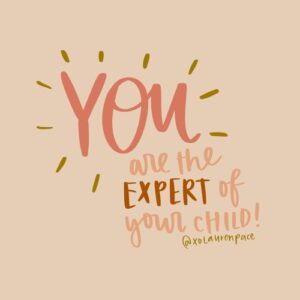
“I am the Lorax. I speak for the trees. I speak for the trees for the the trees have no tongues.”
I grew up kind of obsessed with the book The Lorax. This certainly served me well as it was the foundation from where I parented my special needs child. When you think of the word advocacy, you may think of legal and political issues. But I urge you instead to think about advocacy in term of the Lorax. As parents, we are our children’s voices. Even in the most uncomfortable situations, we must put on the Lorax role, and speak up for our children.
So What is an Advocate?
An “advocate” can be broadly defined as “someone who speaks up on behalf of others to make things better.” In the Dr. Seuss book, the Lorax advocated for the trees as humans were slowly destroying the environment which in turn was killing the trees. The idea of someone speaking for those who cannot speak is one worth noting. Although your adopted child can probably speak, they need a more sophisticated and mature voice to help them through situations where they need specialized support or non-traditional strategies. Remember the Lorax and embrace his message that you must speak up for your child and improve things for them in many settings! That’s advocacy!
You are the Expert of Your Child
You just plain and simple know your child best. You are their teacher. You have their best interests at heart always. You know them inside and out. You know when something is just not right. They show you their true selves which is often tough and can be ugly. You are there 24/7. You are their natural advocate. You are your child’s expert. Don’t let anyone ever intimidate you: your child’s teacher, their doctor, their psychiatrist, or even your family. You know best! Visualize the Lorax to find the courage to speak up for what you know your child needs!
Barriers to Advocacy
 No one said being an advocate for your child would be easy. For some people it may be harder than others. Frankly the trauma that your child endured before you even met them is not easily understood by others. Which means you will need to educate the people in your child’s life about your child’s trauma: that too is part of advocacy. And if you were raised to defer to professionals at all costs, advocating will be especially tough. Or maybe you are naturally shy. Speaking up may go against your family norms. Or maybe your own issues are triggered in these scenarios where you are called on to speak up for your child. These are all very real and understandable barriers to advocacy. Let the Lorax and the love you have for you child inspire and motivate you to do the advocacy work that is needed. Be brave. Check your baggage at the door. Keep reading this newsletter to gain more tips on how to be an effective advocate. You can do hard things!
No one said being an advocate for your child would be easy. For some people it may be harder than others. Frankly the trauma that your child endured before you even met them is not easily understood by others. Which means you will need to educate the people in your child’s life about your child’s trauma: that too is part of advocacy. And if you were raised to defer to professionals at all costs, advocating will be especially tough. Or maybe you are naturally shy. Speaking up may go against your family norms. Or maybe your own issues are triggered in these scenarios where you are called on to speak up for your child. These are all very real and understandable barriers to advocacy. Let the Lorax and the love you have for you child inspire and motivate you to do the advocacy work that is needed. Be brave. Check your baggage at the door. Keep reading this newsletter to gain more tips on how to be an effective advocate. You can do hard things!





